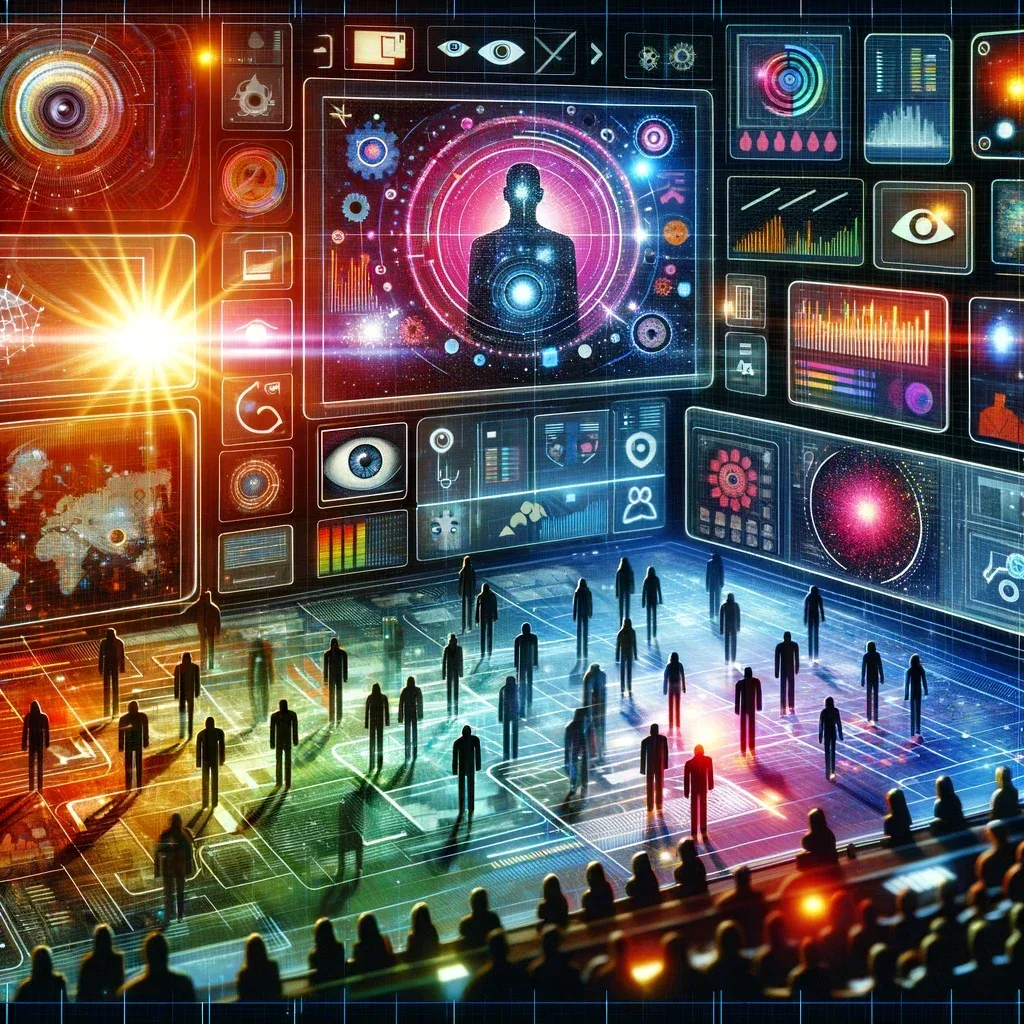Michel Foucault, one of the most influential philosophers of the XNUMXth century, revolutionized the understanding of how power operates in modern societies. His detailed analyzes of disciplinary structures reveal the complexity with which power manifests and perpetuates itself. In this article, we will explore Foucault's ideas, focusing on how power infiltrates and expresses itself through disciplinary structures in diverse social contexts.
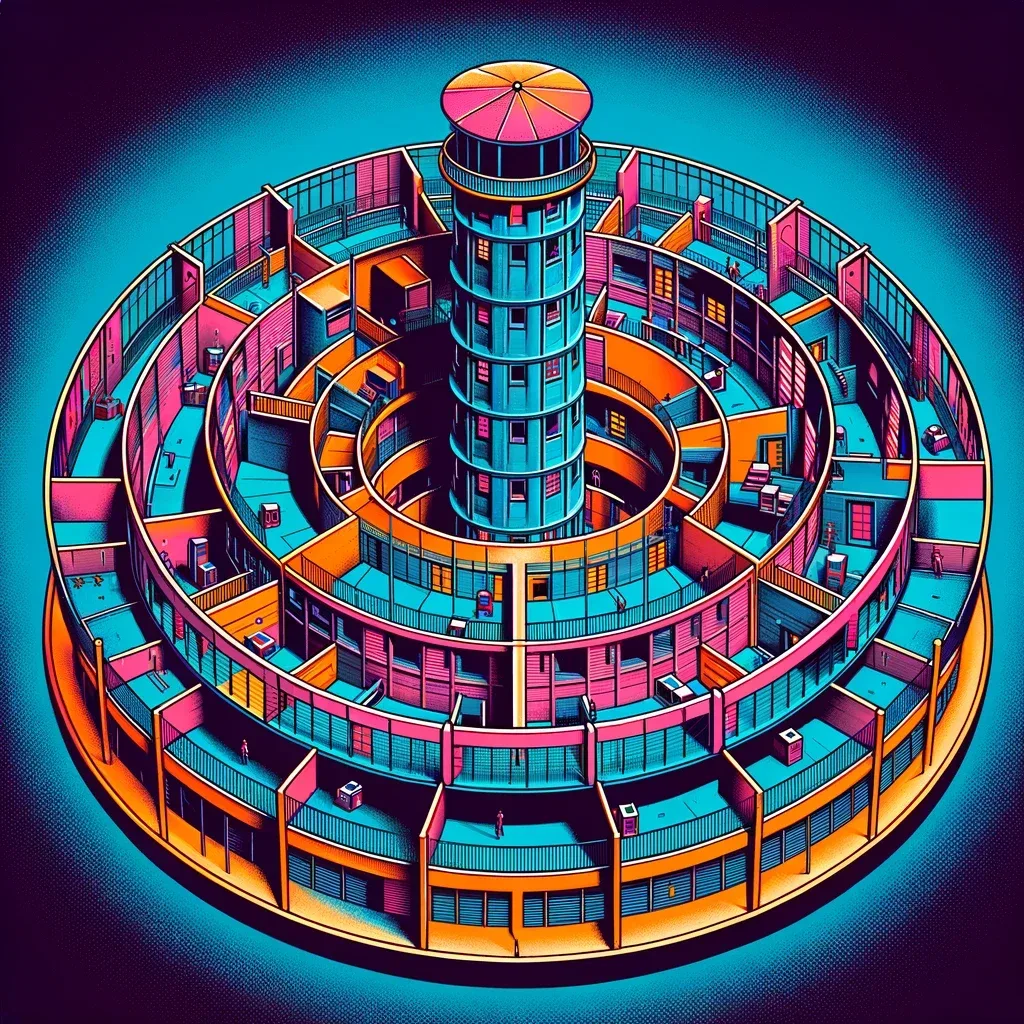
Foucault and the Concept of Power
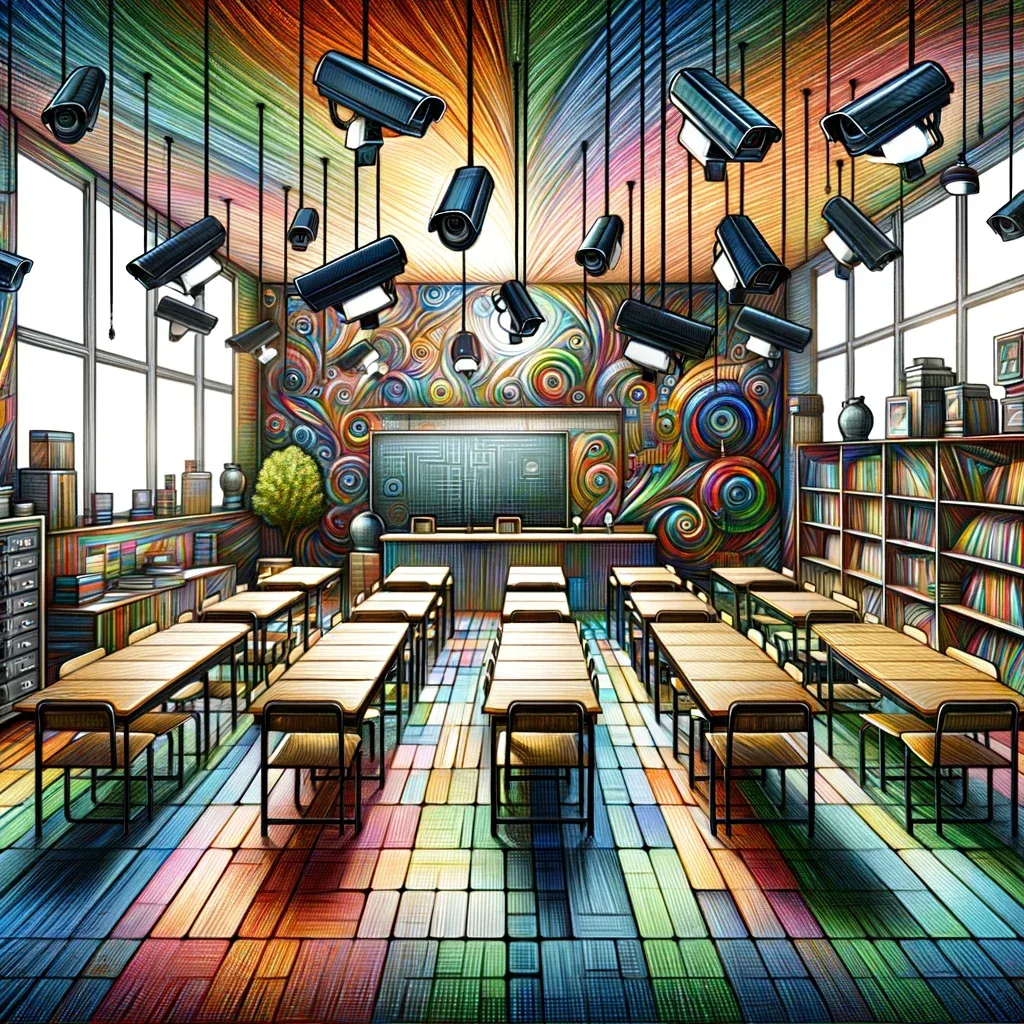
Power Beyond Coercion
Foucault challenged the traditional notion of power as something that is only exercised through force or coercion. For him, power is omnipresent and manifests itself through subtle control mechanisms and social norms.
Power as Relational
Foucault argued that power is not something that someone possesses, but is a force that circulates and operates within relationships. It is relational and not just repressive; shapes, produces and organizes social relations.
The Proliferation of Power
He saw power not only concentrated in state institutions but also dispersed across various social institutions such as schools, hospitals, and prisons. This capillarity of power is crucial to understanding how it manifests itself in disciplinary structures.
Disciplinary Structures and Power
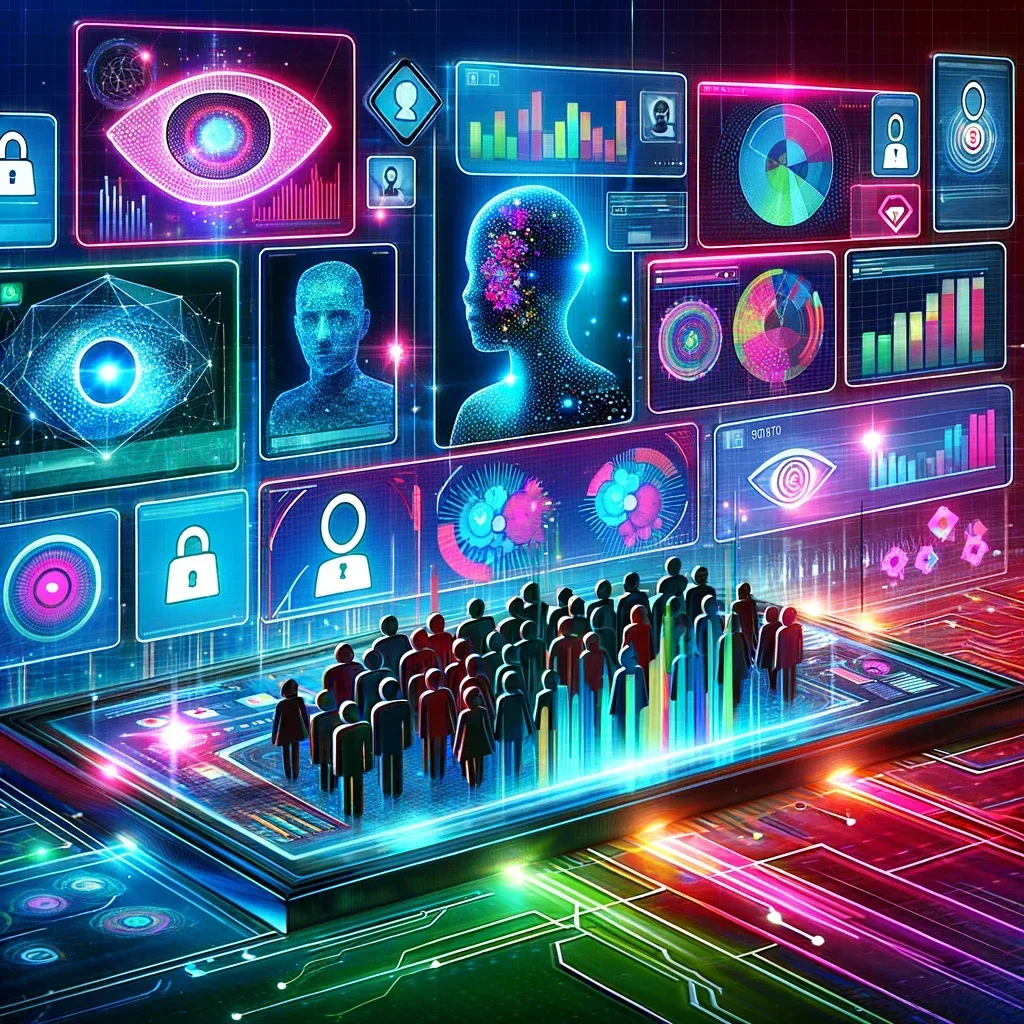
Surveillance and Observation
Foucault detailed how disciplinary structures, such as those found in prisons, schools, and hospitals, are designed to allow for constant surveillance. He used the concept of the Panopticon to explain how surveillance becomes an effective means of social control.
Standardization and Compliance
Disciplinary structures work through normalization, establishing what is considered “normal” and “abnormal”. This normalization is a powerful instrument of control, as it induces people to conform to specific norms.
Examination and Registration
Foucault highlighted the role of examinations and recording information in disciplinary power. These processes transform individuals into “cases” that can be studied, classified and controlled.
Practical Applications of Foucault's Theory of Power
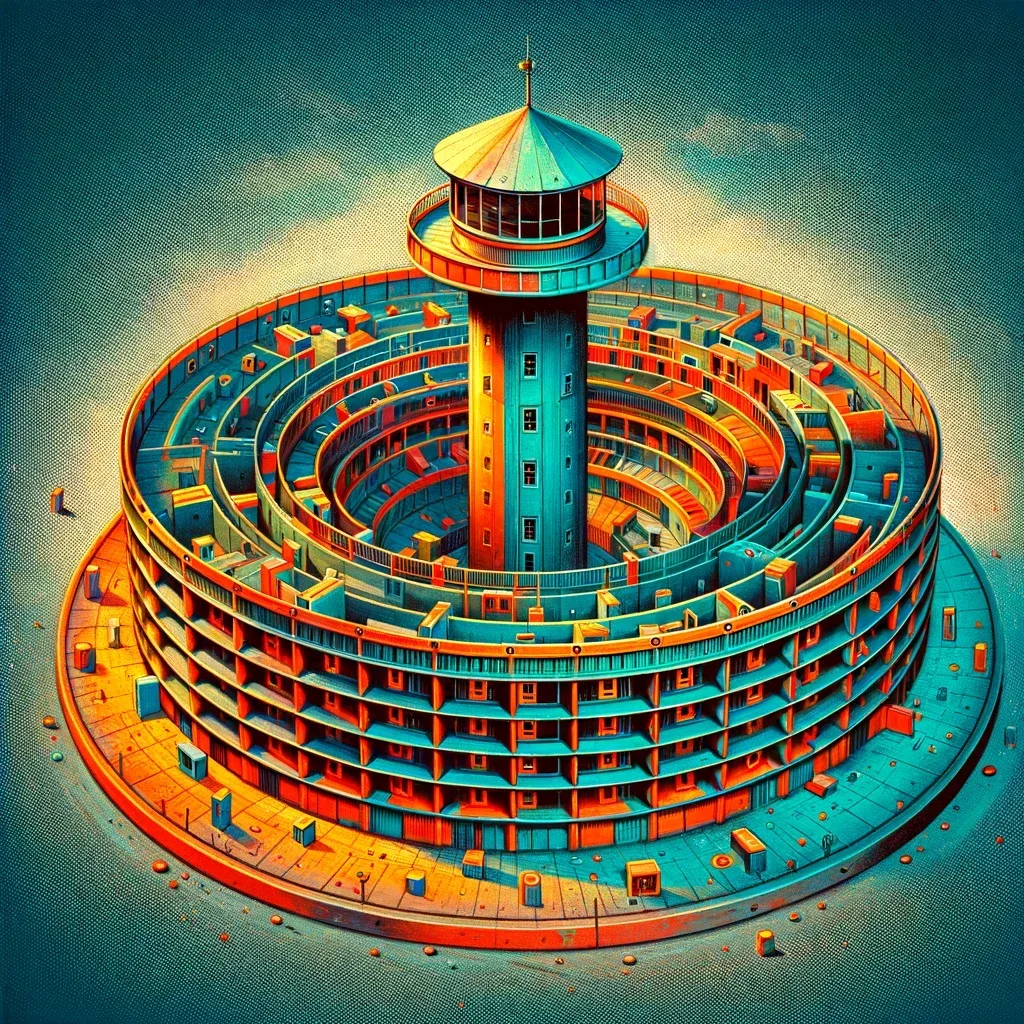
Education and Power
In schools, disciplinary power is evident in the way students are monitored, evaluated and classified. This process shapes not only knowledge, but also students' identities and behaviors.
Health and Biopower
Foucault introduced the concept of biopower to explain how modern power is also concerned with the body and life. In healthcare practices, this is seen in the way bodies are monitored, regulated and normalized.
Surveillance in the Digital Age
In the digital age, Foucault's ideas gain new relevance with the advent of advanced surveillance technologies. The way data is collected and used reflects the continuation and evolution of disciplinary power.
Conclusion
Foucault's theories on power and disciplinary structures offer a valuable perspective on how control and conformity are achieved in modern societies. Understanding how power manifests itself in disciplinary structures is essential to understanding the dynamics of contemporary power relations. Foucault's ideas continue to influence and inform debates about social control, surveillance, and individual freedom.
Frequently Asked Questions about “According to Foucault: How does power manifest itself in disciplinary structures?”
This FAQ is designed to provide an in-depth understanding of Michel Foucault's ideas about the manifestation of power in disciplinary structures, as discussed in the article. Here, we answer the key questions that may arise when exploring this complex and essential topic in the study of modern philosophy and the social sciences.
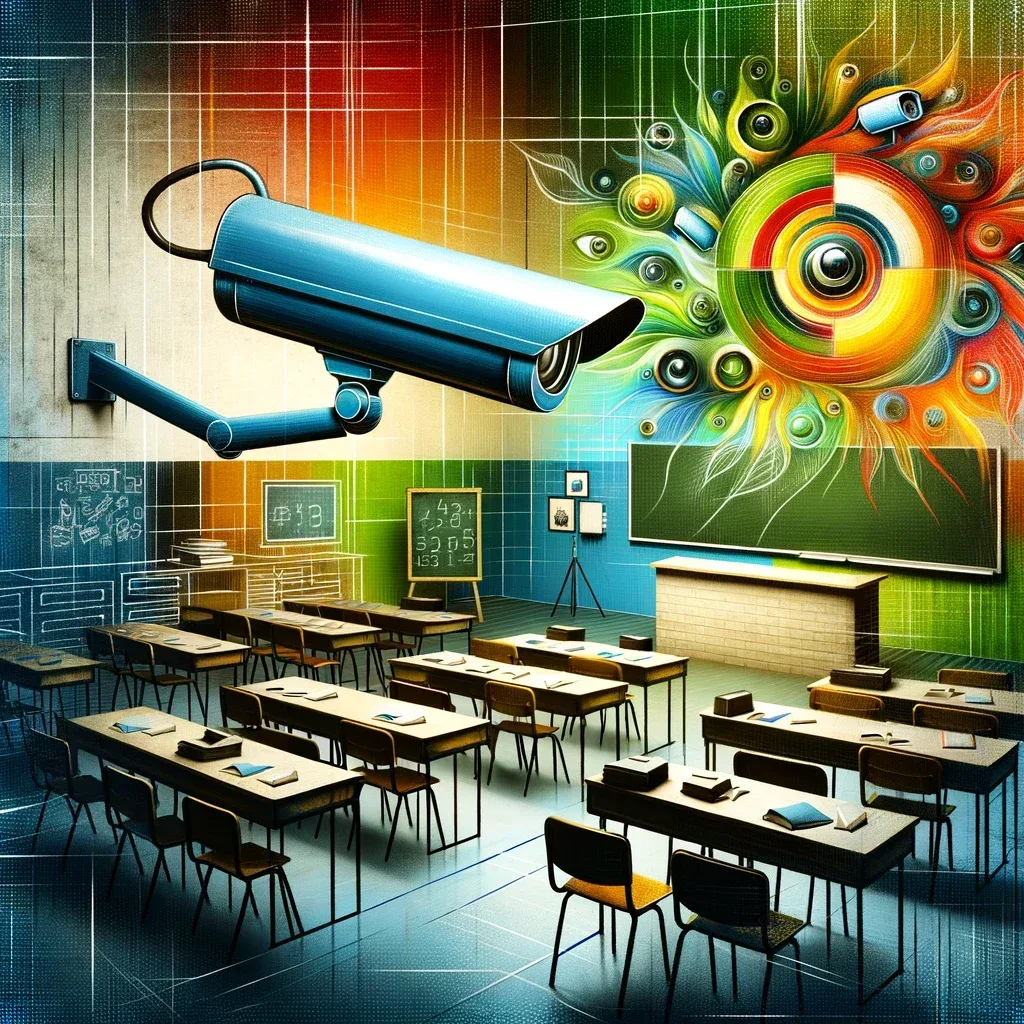
1. How does Foucault define power?
2. What is Foucault’s concept of the Panopticon?
3. How does normalization function as a power mechanism?
4. How does power manifest itself in the educational system, according to Foucault?
5. What is biopower and how does it relate to health?
6. How are Foucault's ideas about power relevant in the digital age?
7. How does power manifest itself in prisons according to Foucault?
8. What is the relationship between power and knowledge in Foucault?
9. How does disciplinary power affect individual identity?
10. What is Foucault's critique of punitive institutions?
This FAQ provides a detailed look at Michel Foucault's theories on power and disciplinary structures, clarifying the complexities of his ideas and their applicability to various social and historical contexts.
